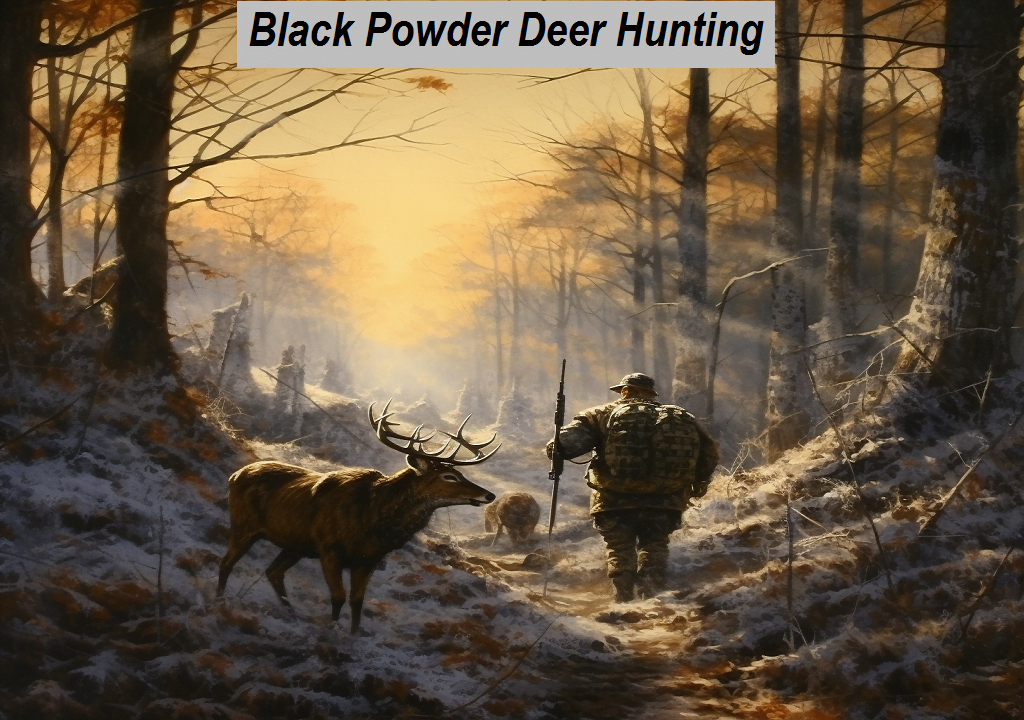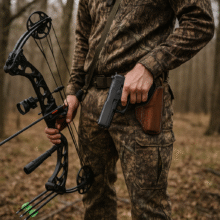Black Powder Deer Hunting: The Call of Tradition in the Modern Wilderness

In the vast, evolving realm of deer hunting, there’s a special corner reserved for enthusiasts of black powder firearms. Delving into this niche brings a blend of tradition, challenge, and respect for the sport.
Table of Contents
Table of contents
1. The Evolution of Black Powder
a. From Chinese Alchemists to European Battlefields
Originating in China and adopted by the Arabs, black powder later fueled Europe’s cannons and muskets. How did a quest for an elixir of immortality lead to gunpowder? That’s a tale for another day!
b. The Renaissance of Black Powder in Modern Times
While modern smokeless powders dominate the firearm industry, the romantic allure of billowing white smoke and the rich history of black powder weapons keep them alive in hunting circles.
2. Why Choose Black Powder?
a. Historical Connection
Every shot taken with a black powder firearm is a nod to history. It’s a tribute to pioneers, settlers, and soldiers who relied on this technology.
b. Embracing the Challenge
With slower reload times and a different shooting technique, black powder hunting is not for the faint-hearted. It’s about skill, patience, and mastery.
c. Ethical Hunting
The limited range and single-shot nature of many black powder firearms ensure hunters take only the most calculated, respectful shots.
3. Gearing Up: A Black Powder Checklist
a. Selecting Your Firearm
From the classic flintlock to the more modern percussion cap, each has its charm and challenges.
b. The Essentials: Powder, Patch, and Ball
Your projectile needs a snug fit and the right powder charge, a balance crucial for accuracy and safety.
c. The Importance of a Powder Horn
This traditional container is more than aesthetic; it’s functional, protecting your powder from moisture.
d. Safety First
When dealing with explosive materials, precautions like protective eyewear and handling procedures are a must.
4. Mastering the Technique
a. The Art of Loading
Loading a muzzleloader is an art. Too much or too little powder can significantly affect your shot.
b. Aiming with Tradition
Without the modern scopes, iron sights demand keen eyes and a steady hand.
c. The Unpredictable Ignition
Flintlocks, with their sparking mechanism, add an element of unpredictability, making every shot an adrenaline rush.
5. The Challenges and Joys of the Hunt
a. One Shot, One Opportunity
The philosophy here is quality over quantity. One well-placed shot can be more satisfying than a dozen with a modern rifle.
b. Weather’s Whims
Humidity and rain can play spoilsport. Adapting to these conditions is part of the game.
c. The Ritualistic Cleaning
Black powder guns require meticulous cleaning, but this ritual deepens the bond between the hunter and their weapon.
6. The Environment and Black Powder Hunting
a. Eco-Friendly Ammo
Lead balls can be harmful to the environment, but there are now eco-friendly alternatives available.
b. Managing Overpopulation
In areas where deer populations threaten the balance of the ecosystem, black powder hunting can play a role in maintaining harmony.
Conclusion
Black powder deer hunting offers an immersive experience unlike any other. Beyond the hunt, it’s about connecting with history, understanding the weapon, and respecting the wilderness.
FAQs
- Is black powder hunting safer than modern hunting?
- Both have their risks. The key is understanding the equipment and following safety guidelines.
- How do I store black powder safely?
- Store it in a cool, dry place away from sparks and open flames. Also, keep it out of children’s reach.
- Why does my flintlock misfire occasionally?
- Flintlocks can be temperamental. It could be due to dampness, worn-out flint, or improper powder load.
- Is there a difference in taste with deer hunted using black powder?
- No, the method of hunting doesn’t affect the taste. However, the cleaning and processing of the meat do.
- Can I hunt all game with black powder firearms?
- While primarily used for deer, experienced hunters sometimes use them for larger or smaller game. However, always check local regulations.







